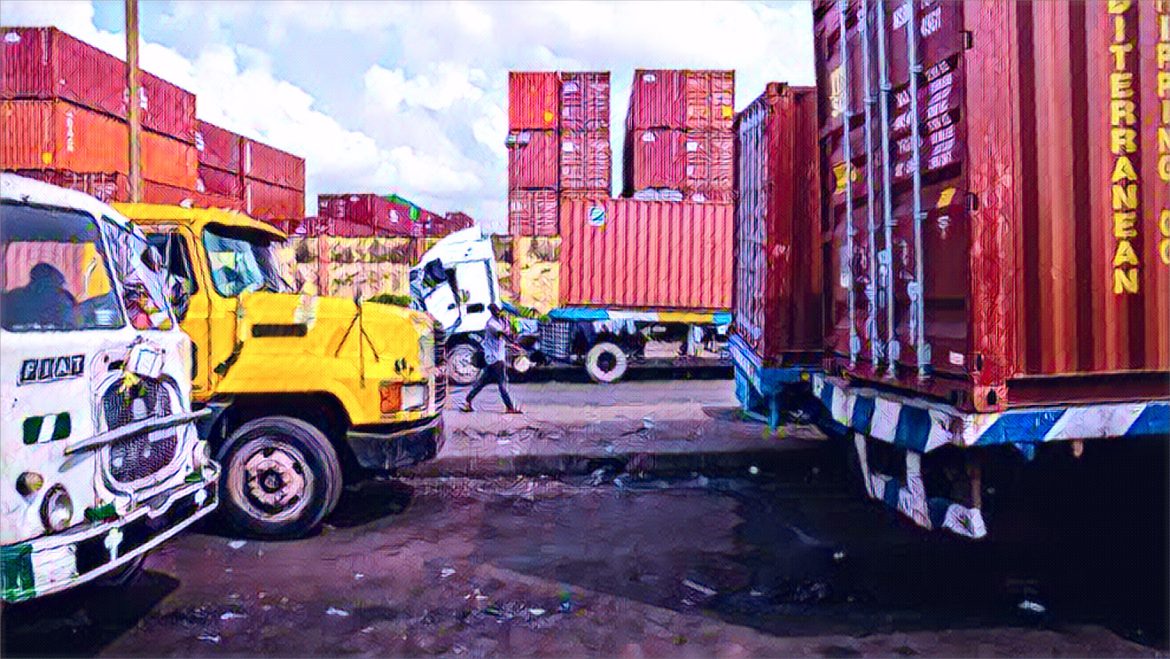The electronic call-up system (Eto) for trucks accessing the Apapa port in Lagos, Nigeria, has been plagued by delays and corruption, according to a report by BusinessDay. The Eto system, which was introduced in February 2021 by the Nigerian Ports Authority (NPA) and Trucks Transit Parks Limited (TTP), was meant to ease traffic congestion and improve the efficiency of port operations. However, truckers have complained that it takes between one and two weeks to get an Eto ticket from the Lilypond terminal, the designated pre-gate for all port-bound trucks. The official price of an Eto ticket ranges from N10,750 to N21,500, depending on the park or pre-gate, but some truckers resort to buying tickets from the black market for as much as N150,000.
The report reveals that some truckers who do not have business at the port would go to Lilypond, generate Eto tickets and sell them to those who have terminal delivery orders (TDOs) and are desperate to access the port. This has created a racketeering network that exploits the loopholes in the Eto system and undermines its objectives. The report also states that the delay in getting Eto tickets has increased the cost of haulage and demurrage for importers, as well as the turnaround time for trucks. For instance, the cost of moving a 40-foot container from Apapa port to Mushin or other warehouses in Lagos has risen to N700,000-N800,000 from N350,000-N370,000. The demurrage for a 40-foot container is now N60,000 per day, while a 20-foot container attracts N45,000 per day.
The Eto system is not the only challenge facing the Apapa port, which handles about 80 per cent of Nigeria’s imports and exports. The port has been struggling with inadequate infrastructure, poor management, bureaucratic bottlenecks, and security issues for years. According to the World Bank, the inefficiency of the Apapa port costs Nigeria about $19 billion annually, equivalent to 5 per cent of its gross domestic product (GDP). The port also ranks 343 out of 351 ports in the World Bank’s 2020 Container Port Performance Index, with an average of 264 hours to process a container.
The NPA and TTP have acknowledged the problems with the Eto system and promised to address them. Irabor Akonoman, the head of operations at TTP, said the company is in the process of implementing advanced technologies such as radio-frequency identification and other measures to prevent the swapping of plate numbers and discourage ticket racketeering. He also said the company will seek NPA approval to implement a consequence management system that would disable the user account of any transporter or agent found to have committed any infraction that sabotages the Eto system.
The Eto system is part of the efforts by the Nigerian government to reform the port sector and improve the ease of doing business in the country. The government has also embarked on several projects to upgrade the port infrastructure, such as the reconstruction of the Apapa-Oshodi-Oworonshoki expressway, the deepening of the port channels, and the construction of the Lekki deep seaport. These projects are expected to increase the capacity and competitiveness of the Apapa port and reduce the cost of trade for importers and exporters. The government has also expressed its commitment to implement the National Single Window, a platform that would integrate all the agencies and stakeholders involved in the port processes and facilitate the clearance of goods.
The Apapa port is a vital asset for Nigeria’s economy and a gateway to the West African region. The successful implementation of the Eto system and other reforms would not only enhance the efficiency and productivity of the port, but also boost the confidence of investors and traders in the country’s maritime sector.
Source: BusinessDay


